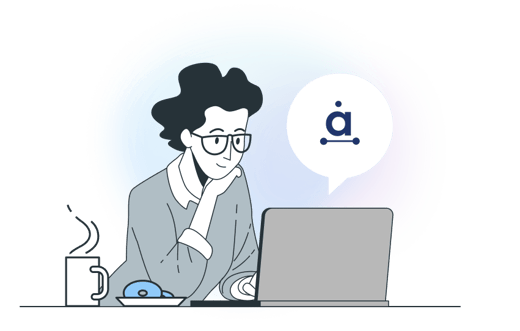Strengthening brand-consumer relationships with data
In the right hands, data can be extremely useful for enriching people’s lives – from improving their shopping experiences to addressing their biggest pain points. It can even be used to strengthen brand relationships with consumers. For Jonathan Silver, CEO and founder of data-led intelligence platform, Affinity Solutions, it’s all about prioritizing consumer control of data and staying true to your principles.
In an interview with Nathaniel Schooler for the podcast series The Secrets of Audience Intelligence, the Wharton graduate talked about his commitment to using data to help people’s lives, to help businesses build deeper relationships with consumers, while retaining and growing their market share. At Affinity Solutions, they make this happen using an incredibly valuable dataset consisting of 90 million consumers in the US and another 4 million in the UK.
Jonathan gave us some insights into how the platform came to be and what kind of work they’ve done so far. He also shared his vision for using data to improve people’s lives and why the responsible use of data is critical.
Going from insights to action
Jonathan explained how Affinity Solutions serves businesses that want to make better decisions. And data plays a critical role in this because it’s the “source of truth for how people buy.” It helps you identify what your competitors are doing and what’s happening outside your own business. Affinity Solutions gives businesses the ability to use that data to make their marketing more relevant and measure their advertising.
He discussed how they have a set of products that allows companies to take action on the insights they’ve uncovered. For instance, if they find that a company is losing market share to competitors, they can stem the share loss by identifying people that are likely choosing the competition and then targeting them with the right message.
“That dataset, the source of truth and authoritative repository for purchase activity is a key foundation for insights and marketing,“ he pointed out.
“It’s really about solving problems or exploiting opportunities that we see on the insights through better targeting, better marketing, and then measuring it by being able to connect the dots between those who saw the ad and their purchase information.”
Data also helps to identify the emotional reasons why consumers choose certain businesses. We call that affinity – What floats your boat, what your life stage is like, what your lifestyle is like, what you’re passionate about, and so on. Affinity Solutions helps businesses to identify what their customers are emotionally connected to and then connect with them in a way that aligns with their affinity. This helps to create and strengthen relationships with consumers.
About your vision for improving people’s lives using data…
Jonathan explained how Affinity Solutions came up with their Data for Good initiative to fulfil their vision for using data to improve people’s lives. Through this initiative, the company gave some of its data away to not-for-profits including scientists, academics, and researchers. The goal is to use the data to inform government policy-making and identify ways to create more awareness.
He gave an example of how they worked with Harvard and Brown University to put a spotlight on how people of different income levels were responding to the coronavirus. “Turns out the higher-income people had a much more dramatic drop in spending as a result of the coronavirus and a much slower recovery compared to lower-income folks,” he elaborated.
And this had a ripple effect on the economy because a lot of the higher-income spending was at discretionary categories like restaurants or salons, where lower-income people are likely to work. “When the higher income folks spent less, it turned out the lower income people who depended on the spending of the higher income people were affected.”
Maintaining consumer privacy through it all
“We’re 100% committed to datasets being made available with consumer permission,” Jonathan stated.
“At Affinity Solutions, we believe we’ll become a trusted intermediary that will act as an advocate for the consumer to ensure that your data’s used only in a way that you consented, and also to vet the applications, the solutions, the services that are being made available that will access the data.”
He explained how they’re not just giving out data but making data accessible in a very privacy-controlled way only to support the particular application that the consumer signed up for.
In addition to anonymising the data, they hash it, perturb it, and modify it to eliminate any risk of people reidentifying it. For instance, they modify the dollar amounts and dates. So if you made a transaction for $500 on a Tuesday, in the data it could show up as a $600 transaction on a Monday.
“So it’s using technology to really transform the data into something that is analytically valuable for the consumer, for the business, but can’t be identified.” And through all this, the consumer retains control of how their data is shared and used.
Jonathan also addressed the issue of regulations that could restrict data collection, explaining the importance of consent management and privacy control as the gateway for access to your data. “If we’re true to our principles, the regulations become almost a non-issue because we’re going further than what the regulations require.”
About the Affinity marketplace…
Affinity Solutions came up with a data platform that acts like a middleware between companies that need the data to power their apps and the underlying data itself. They opened the platform up to bring third-party companies in, with different companies focusing on their areas of specialty. “And so you start to build this ecosystem of partners that we envision showing up as a marketplace.”
“It’s not a marketplace to sell data, it’s a marketplace to enable solutions to be created on top of data,” he clarified.
These are excerpts from the interesting interview that Nat Schooler did with Jonathan Silver and which can be listened to in its full version here:





.png?width=60&name=image%20(62).png)